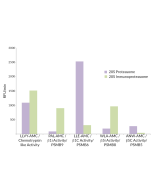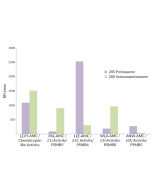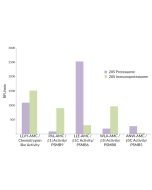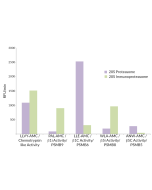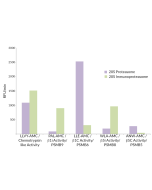Cookie Policy: This site uses cookies to improve your experience. You can find out more about our use of cookies in our Privacy Policy. By continuing to browse this site you agree to our use of cookies.
SouthBayBio
20S Immunoproteasome (mouse) (untagged)
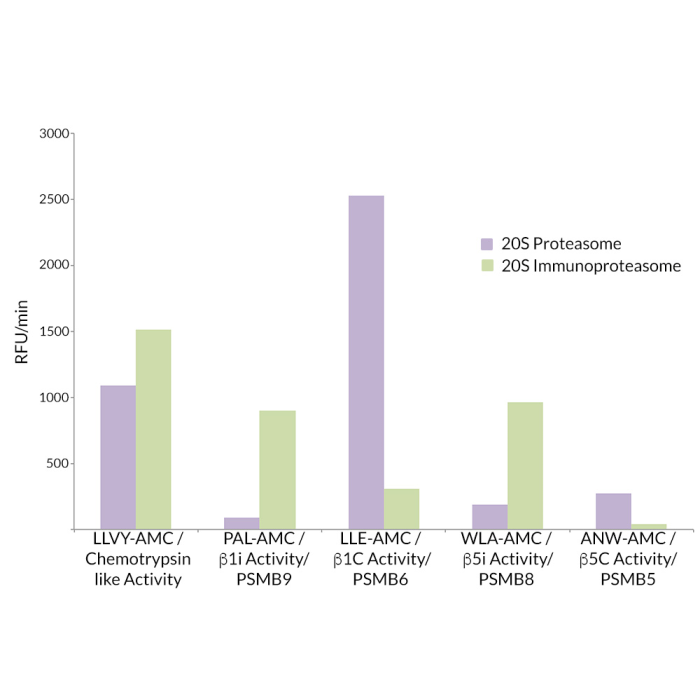
| Product Details | |
|---|---|
| Product Type | Protein |
| Properties | |
| Source/Host | Mouse Spleen |
| Sequence |
Mouse 20S Immunoproteasome. |
| Crossreactivity | Mouse |
| Application |
Experiments should be carried out at 20S immunoproteasome concentrations between 2-5nM. The 20S immunoproteasome is commonly associated with the 19S, PA28 α/β, or the PA28γ regulatory complexes. If choosing to omit PA28 during use, 20S must be chemically activated by addition of 0.035%SDS in final assay buffers. |
| MW | ~700kDa |
| Purity | ≥92% (SDS-PAGE) |
| Concentration | Lot dependent. |
| Formulation | Liquid. In 50mM HEPES pH 7.5, 100mM sodium chloride, 1mM TCEP. |
| Other Product Data |
Click here for a Typical Lot-specific Product Datasheet from the Original Manufacturer |
| Declaration | Manufactured by South Bay Bio. |
| Shipping and Handling | |
| Shipping | DRY ICE |
| Short Term Storage | -80°C |
| Long Term Storage | -80°C |
| Handling Advice | Aliquot to avoid freeze/thaw cycles. |
| Use/Stability | Stable for at least 1 year after receipt when stored at -80°C. |
| Documents | |
| Product Specification Sheet | |
| Datasheet |
 Download PDF Download PDF |
The 20S immunoproteasome is structurally similar to constitutive 26S proteasome. The 20S core of immunoproteasome contains two outer rings composed of α-subunits, and two internal 7-subunit containing rings each possessing 3 specific subunits responsible for proteasome catalytic activity. In immunoproteasomes these subunits (ß1, ß2, ß5) are replaced by three inducible subunits: PSMB9, PSMB10 and PSMB8, (ß1i, ß2i, ß5i). These stress-induced subunits allow for the production of MHC-1 associating peptides, which are displayed as antigens on the cell surface. These displayed peptides can then be recognized by immune surveillance CD8 T cells. 20S immunoproteasome is recognized as a strong drug target for autoimmune disease and cancer.






